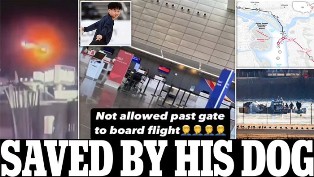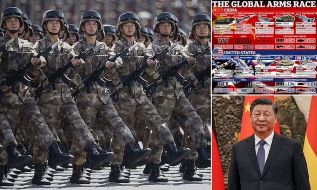Inpres Nomor 2/2013 Sebagai `Jalan Tengah` Atasi Konflik Komunal
Presidential Instruction No. 2/2013 As a ´the Middle Path´ for Communal Conflict Resolution
Reporter : Gusmiati Waris
Editor : Heru S Winarno
Translator : Parulian Manalu
 b.jpg)
Jakarta (B2B) - Gubernur Lembaga Ketahanan Nasional (Lemhanas) Budi Susilo Soepandji mengatakan penerbitan Instruksi Presiden (Inpres) Nomor 2 Tahun 2013 tentang Peningkatan Efektivitas Penanganan Gangguan Keamanan Dalam Negeri merupakan 'jalan tengah' untuk konflik sosial yang semakin kompleks.
“Karena RUU Keamanan Nasional (Kamnas) hingga akhir 2012 masih buntu, sedangkan kebutuhan penyelesaian konflik komunal sangat mendesak, maka Inpres dikeluarkan,” kata Budi Susilo Soepandji dalam diskusi besama sosiolog UI, Imam B Prasodjo di kantor Lemhanas, Jakarta, Kamis (7/2).
Budi menambahkan, Inpres Nomor 2 Tahun 2013 dibutuhkan untuk mempermudah perbantuan TNI ke Polri. Inpres juga dikeluarkan untuk optimalisasi peran TNI dan Polri agar berdampingan meredam konflik. Penerbitan Inpres merupakan upaya agar rakyat di daerah konflik bisa diselamatkan.
“Selain itu, penggunaan TNI yang menggunakan anggaran negara juga bisa optimal. Jadi, bukan dalam konteks melanggar HAM atau menghilangkan demokrasi, tapi untuk menjaga keutuhan bangsa. Maka TNI perlu diberdayakan,” ungkap Budi.
Budi mengakui, pembahasan mengenai RUU Kamnas memang masih buntu. Bahkan, dalam diskusi yang digelar Lemhannas sendiri, banyak penanggap yang masih khawatir UU ini akan membangkitkan kekuatan TNI yang bisa melanggar HAM.
Namun demikian, Lemhannas mengkaji, dalam konteks keamanan yang lebih luas, UU Kamnas diperlukan untuk mengoptimalkan peran TNI dan Polri. “Agar kedua aparat keamanan itu tak berjalan sendiri-sendiri dan justru merugikan masyarakat,” katanya.
Keberadaan UU Kamnas, lanjutnya, karena Indonesia adalah negara demokratis sehingga dibutuhkan aparat keamanan yang senantiasa bertindak dalam koridor hak demokrasi dan Pancasila.
“Lagipula kondisi saat ini sudah jauh berbeda. TNI sudah berkomitmen tak mau berpolitik. Mereka juga menegaskan hanya mau diberdayakan sebagai kekuatan pertahanan,” kata mantan direktur jenderal Potensi Pertahanan, Kementerian Pertahanan ini lagi.
Jakarta (B2B) - Governor of the National Defense Institute (Lemhanas) Budi Susilo said Soepandji issuance of Presidential Instruction (Instruction) No. 2 Year 2013 on Improving the Effectiveness of Internal Security is a 'middle way' to an increasingly complex social conflicts.
"Because of the Bill of Ordinance National Security (National Security) until the end of 2012 is still deadlocked, while the need is urgent communal conflict resolution, the Presidential Directive was issued," said Budi Susilo Soepandji in discussions with UI sociologist Imam B Prasodjo in Lemhanas office, Jakarta, Thursday (7/2).
He said the Presidential Instruction No. 2 of 2013 is needed to facilitate military support to the police. Instruction was also issued for optimizing the role of the military and police in order to reduce conflict coexist. Issuance Presidential Instruction is an effort to let the people in conflict areas can be saved.
"In addition, the use of the military use of the state budget can also be optimized. So, not in the context of human rights violations or eliminate democracy, but to maintain the integrity of the nation. So the military needs to be empowered, "said Budi.
Budi admitted, the discussion on National Security Bill is still stuck. In fact, in a discussion held Resilience Institute, many responders are still worried this law will generate the TNI could violate human rights.
However, Lemhannas examine, in the context of the wider security, National Security Act is necessary to optimize the role of the military and police. "In order for the security forces did not walk alone and to the detriment of the public," he said.
The existence of National Security Act, he added, because Indonesia is a democratic country and so we need the security forces always act in the right corridor and Pancasila democracy.
"Moreover, the current conditions are far different. TNI is committed not want to engage in politics. They also asserted only as a defense force would be empowered, "said the former director general of Potential Defense, the Ministry of Defence.















